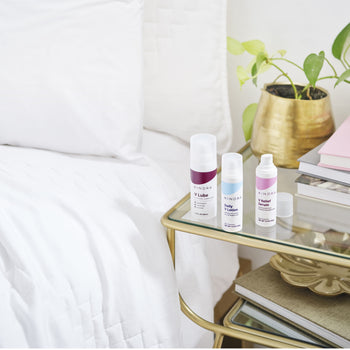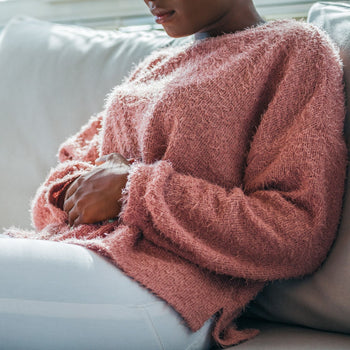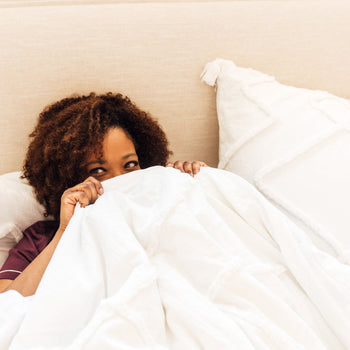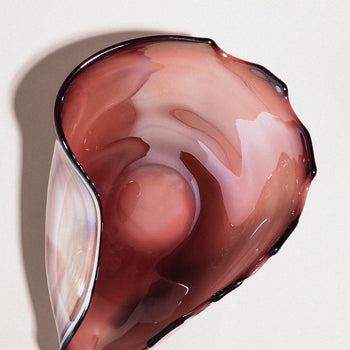First, remember you’re not alone. For many of us, the transition into menopause and the years that follow can usher in a perfect storm of symptoms that wreak havoc on our sex drive (among other things). The fluctuation and eventual loss of estrogen, testosterone, and progesterone likely play a significant role. For starters, the loss of estrogen can cause vaginal dryness and irritation, making sex uncomfortable at best and painful at worst—a definite turn-off. It can also trigger night sweats, which may lead to insomnia, leaving you so exhausted by the end of the day that sex is the last thing on your mind. Additionally, blood flow to the vagina and clitoris diminishes along with your hormones, making you less sensitive to touch and slower to become aroused. Not to mention, but we will because this is important: there are often many non-hormone-related stresses at this time in your life—caring for aging parents, for example—that can dampen mood as well as libido.
This sounds grim, we know, but none of it means you can’t, or won’t, get your groove back! If vaginal dryness or burning is a problem, talk to your doctor about a prescription low-dose estrogen cream, ring, or tablet. 95% of users of the Kindra Daily Vaginal Lotion report meaningful improvement in vaginal dryness, and 80% say it feels like a natural lubrication. It's a win-win for this cult-fave.
The Daily Vaginal Lotion
If hot flashes or night sweats have been interfering with your sleep, consider hormone replacement therapy, which can be an effective treatment for those issues, if your health care provider thinks you are a good candidate. Not all of us are candidates for HRT, which is why Kindra introduced the Core Dietary Supplement. This daily wellness supplement was designed with clinically studied ingredients to help balance your moods, increase energy levels, and improve concentration so you can feel good and stay more focused every day. Plus, 65% of women reported a decrease in hot flashes while taking this body-balancing supplement.
The Core Supplement
Getting regular exercise is also key, not only for boosting mood and physical well-being, but also for improving blood circulation to all parts of your body. And if that’s not enough to get you moving, consider these findings from a 2010 study in the Journal of Women’s Health: after reviewing the data from nearly 300 peri- and early post-menopausal women, researchers found that those who did the most exercise also reported the greatest interest in sex. (The researchers also found a similar link in those who drank alcohol, so feel free to treat yourself to a glass of wine at night, too, but keep this in mind—too much alcohol can dull your senses.)
Also keep in mind that if you’ve started any new medications check to see if “decreased libido” or “decreased sexual interest” are among the list of possible side effects; if so, your doctor may be able to offer you another option. Finally, if you have a partner, don’t be afraid to talk about your issues. Often after a frank, intimate conversation—and possibly therapy too—you’ll be more comfortable exploring new ways to spark excitement, both in and out of the bedroom.
Have other concerns you want to address? Take the Kindra Menopause Quiz and discover a personalized regimen, tailored to your most intimate menopausal needs.
The Menopause Quiz
Continue the Conversation
Leave a Reply
Tags: About Menopause Anxious body homepage Low Sex Drive Mental Well-Being Painful Sex Physical Well-Being sex Stressed Vaginal Dryness




















Don’t have desire for sex snd I am dry
— Deba Florez